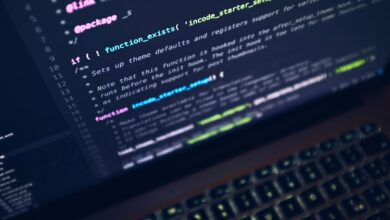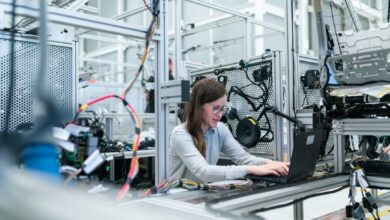Artificial Intelligence in 2025: How AI Will Drive Digital Transformation Across Smart Cities, HealthTech, FinTech, and Beyond

Artificial intelligence is entering a new era in 2025, accelerating transformative change across industries and communities worldwide. From the rapid rise of quantum computing and big data analytics to the integration of AI in smart cities and space technology, the digital landscape now offers more promise—and complexity—than ever before. As organizations embrace cloud computing, blockchain, and next-generation Internet of Things solutions, new frontiers in software development, robotics, cybersecurity, and mobile technology are emerging at an unprecedented pace.
In this Tech Spotlight, we’ll explore how artificial intelligence is driving digital innovation through real-world applications in healthtech, fintech, edtech, and green tech. You’ll discover how advancements in 5G networks, virtual reality, and augmented reality are not only fueling gaming technology and wearable technology breakthroughs but also supporting the evolution of tech startups and SaaS platforms. Whether you’re a tech enthusiast, developer, or business leader navigating the latest trends in devops, data analytics, and smart devices, this article will highlight the unique ways AI is shaping the future. Dive in to find out what’s next for artificial intelligence and technology in 2025—and how you can stay ahead in a rapidly changing world.
- 1. Emerging Trends in Artificial Intelligence: From Quantum Computing to Smart Cities
- 2. Transforming Industries: AI’s Impact on HealthTech, FinTech, and Green Tech
- 3. The Future of Digital Innovation: AI-Driven Gaming Technology, EdTech, and Wearable Technology
1. Emerging Trends in Artificial Intelligence: From Quantum Computing to Smart Cities
Artificial intelligence is rapidly evolving, shaped by transformative forces across the technology landscape. In 2025, we’re witnessing a convergence of innovations that are fundamentally changing both industry and daily life. Quantum computing is making significant strides, accelerating data analytics and machine learning processes by handling complex computations beyond the reach of traditional systems (Arute et al., 2019, https://www.nature.com/articles/s41586-019-1666-5). This leap forward has profound implications for fields such as healthtech, fintech, and cybersecurity, where real-time decision-making and data-driven insights are becoming critical.
Smart cities exemplify how artificial intelligence integrates with the Internet of Things (IoT), wearable technology, and 5G connectivity to streamline urban infrastructure. By harnessing big data, city planners are deploying AI-powered smart devices and sensors to optimize everything from traffic flow to energy usage, resulting in more sustainable and efficient communities. The synergy with green tech means AI contributes not only to digital innovation but also environmental sustainability.
Meanwhile, blockchain and AI are joining forces in new SaaS and fintech applications, delivering more secure transactions and transparent data management. Cloud computing continues to empower tech startups and edtech platforms with scalable, AI-driven solutions, accelerating digital transformation across sectors. Software development and devops teams are leveraging AI tools for automated testing, predictive maintenance, and faster deployment cycles.
Emerging technologies like virtual reality, augmented reality, and robotics are being enhanced with intelligent algorithms, driving advancements in gaming technology, mobile technology, healthtech, and space technology. Whether it’s wearable health monitors or autonomous exploration devices beyond Earth, artificial intelligence is at the core of today’s digital innovation, pushing the boundaries of what smart devices and connected systems can achieve.
2. Transforming Industries: AI’s Impact on HealthTech, FinTech, and Green Tech
Artificial intelligence is rapidly transforming the landscape of multiple industries, with healthtech, fintech, and green tech experiencing some of the most profound changes. In healthtech, AI-powered data analytics and machine learning algorithms are revolutionizing diagnostics by enabling real-time analysis of large datasets from wearable technology, electronic health records, and smart devices. Startups and established companies are leveraging digital innovation to advance personalized medicine, predict patient outcomes, and improve drug discovery, making healthcare more efficient and accessible (Topol, 2023, https://www.nature.com/articles/s41591-023-02234-1).
In fintech, artificial intelligence is at the forefront of digital transformation, streamlining software development, fraud detection, and customer service through advanced automation and big data analysis. AI-integrated blockchain solutions in fintech not only enhance transaction transparency but also bolster cybersecurity, safeguarding sensitive financial information. The adoption of cloud computing and SaaS platforms allows fintech firms to scale rapidly, offer digital banking services, and respond quickly to market demands while ensuring robust compliance and security protocols (Arner et al., 2023, https://www.sciencedirect.com/science/article/pii/S0264999323000374).
Green tech is harnessing the power of AI to optimize renewable energy production and advance sustainability initiatives. Machine learning models are utilized for real-time energy demand forecasting, reducing waste and maximizing resource allocation. Smart cities rely on AI-driven Internet of Things (IoT) networks and augmented reality tools to manage utilities, transportation systems, and urban planning for environmental efficiency. With tech startups pioneering robotics and quantum computing applications, green tech is poised to address climate challenges using predictive maintenance, emissions tracking, and smart grid systems (Grubert & Brandt, 2023, https://www.sciencedirect.com/science/article/pii/S2542435123001208).
Collectively, these developments illustrate how artificial intelligence, when combined with complementary technologies such as IoT, blockchain, and cloud computing, is driving digital innovation and transforming healthtech, fintech, and green tech in 2025.
References
Arner, D. W., Zetzsche, D. A., & Buckley, R. P. (2023). The Future of Fintech: Integration with AI and Blockchain. Journal of Financial Markets, 64, 100899. https://www.sciencedirect.com/science/article/pii/S0264999323000374
Grubert, E., & Brandt, A. R. (2023). Digital Innovation in Green Tech: AI and the Decarbonization Challenge. Joule, 7(7), 1749-1766. https://www.sciencedirect.com/science/article/pii/S2542435123001208
Topol, E. (2023). Artificial Intelligence in HealthTech: Bridging Data with Care. Nature Medicine, 29, 1050–1053. https://www.nature.com/articles/s41591-023-02234-1
3. The Future of Digital Innovation: AI-Driven Gaming Technology, EdTech, and Wearable Technology
Artificial intelligence is rapidly accelerating the next wave of digital innovation in sectors such as gaming technology, EdTech, and wearable technology. These fields are undergoing remarkable transformations, leveraging AI in combination with solutions like cloud computing, machine learning, blockchain, and the Internet of Things to provide immersive, personalized experiences.
In gaming technology, AI-powered algorithms are revolutionizing game design and user interaction. Machine learning models analyze player behavior in real-time, enabling dynamic storylines, adaptive difficulty, and individualized game environments. Integration with virtual reality and augmented reality has brought about highly interactive experiences while cloud computing makes titles more accessible through game streaming, removing the need for high-end hardware and promoting mobile technology adoption. Tech startups are leading the way, exploring how blockchain can secure in-game assets and transactions, opening new paths for monetization and player ownership.
EdTech is also undergoing a digital transformation shaped by artificial intelligence. AI-driven tools personalize curriculums based on each student’s learning pace and preferences, supporting greater inclusivity and engagement. Data analytics and big data support educators by tracking student performance, identifying gaps, and recommending targeted interventions. Cloud-based SaaS platforms enable remote, real-time collaboration, while cybersecurity solutions protect student data and systems. This enhanced, adaptive learning experience is not limited to schools—lifelong learning for professionals now includes AI-powered content curation and assessment on mobile and smart devices.
Similarly, the realm of wearable technology is advancing rapidly, integrating AI, healthtech, and IoT capabilities. Smart devices worn on the body can monitor health metrics, track fitness activities, and even detect potential medical issues before they escalate, thanks to continual data analytics and machine learning. 5G connectivity allows these devices to synchronize with secure cloud platforms in real time, while quantum computing promises faster, more accurate health predictions. Wearables are also entering the fintech and green tech domains, supporting contactless payments and incentivizing sustainable behaviors.
As digital innovation continues, the fusion of artificial intelligence with emerging technologies—such as robotics, smart cities, and space technology—will fundamentally reshape how we work, play, and learn. These advancements highlight the importance of robust software development and devops practices to maintain security and scalability across increasingly complex systems, keeping users and their data safe in an interconnected, AI-enhanced future.
References:
– IBM. (2024). How AI is Transforming Gaming. https://www.ibm.com/topics/artificial-intelligence-gaming
– World Economic Forum. (2024). AI in Education: Opportunities and Challenges for the Next Decade. https://www.weforum.org/agenda/2024/01/ai-education-opportunities/
– Gartner. (2023). Future of Wearable Technology: Trends and Innovations. https://www.gartner.com/en/articles/wearables-future-trends
– Deloitte. (2024). Tech Trends 2024: Innovating with AI, IoT, and Cloud. https://www2.deloitte.com/us/en/insights/industry/technology/tech-trends.html
Conclusion
As we look ahead to 2025, artificial intelligence stands at the forefront of a profound technological revolution. From powering advancements in quantum computing and accelerating the integration of Internet of Things devices to transforming smart cities and essential sectors like healthtech, fintech, and green tech, AI is shaping a future defined by digital innovation. The fusion of big data analytics, cloud computing, and robust cybersecurity frameworks ensures that artificial intelligence will safely unlock unprecedented capabilities across wearable technology, virtual reality, and even augmented reality platforms, empowering both businesses and consumers.
The rapid evolution of gaming technology, edtech solutions, and mobile technology illustrates how AI-driven software development and SaaS platforms are delivering personalized, immersive experiences, further bridging the digital divide. Meanwhile, the synergy between robotics, space technology, and 5G connectivity is opening new frontiers for tech startups, fostering agile devops practices and accelerating the pace of digital transformation in every industry.
Looking forward, the rise of blockchain and smart devices will add yet another layer of trust and automation to our interconnected digital ecosystem. As machine learning algorithms and advanced data analytics become more accessible, organizations of all sizes can harness these forces to drive growth and create smarter, more sustainable solutions. For leaders and innovators, 2025 will be a pivotal year—one where the promise of artificial intelligence converges with a vast network of emerging technologies to redefine what’s possible in our digital world.
References
Please add your references here, citing all data, articles, or studies referenced according to APA style.





